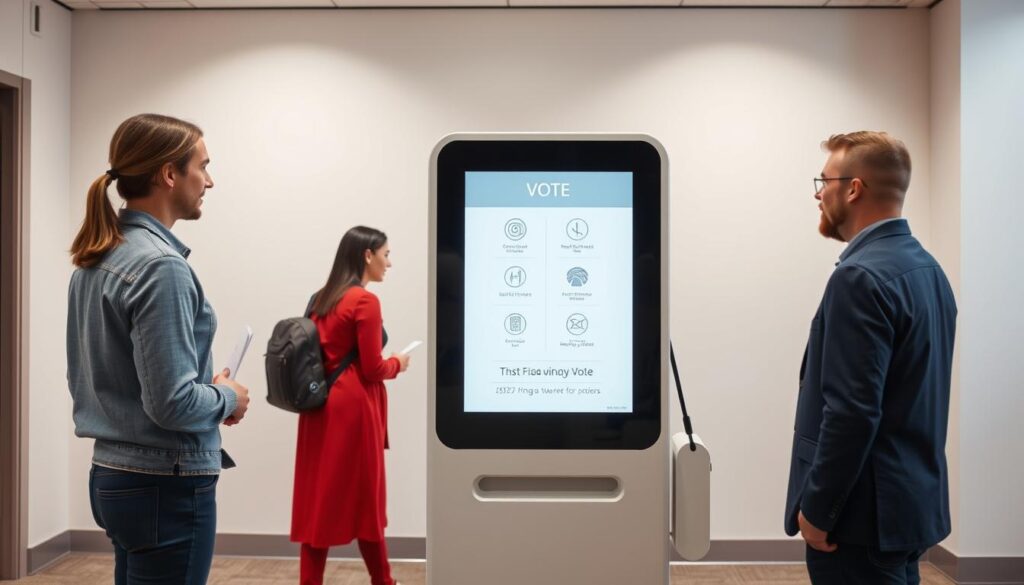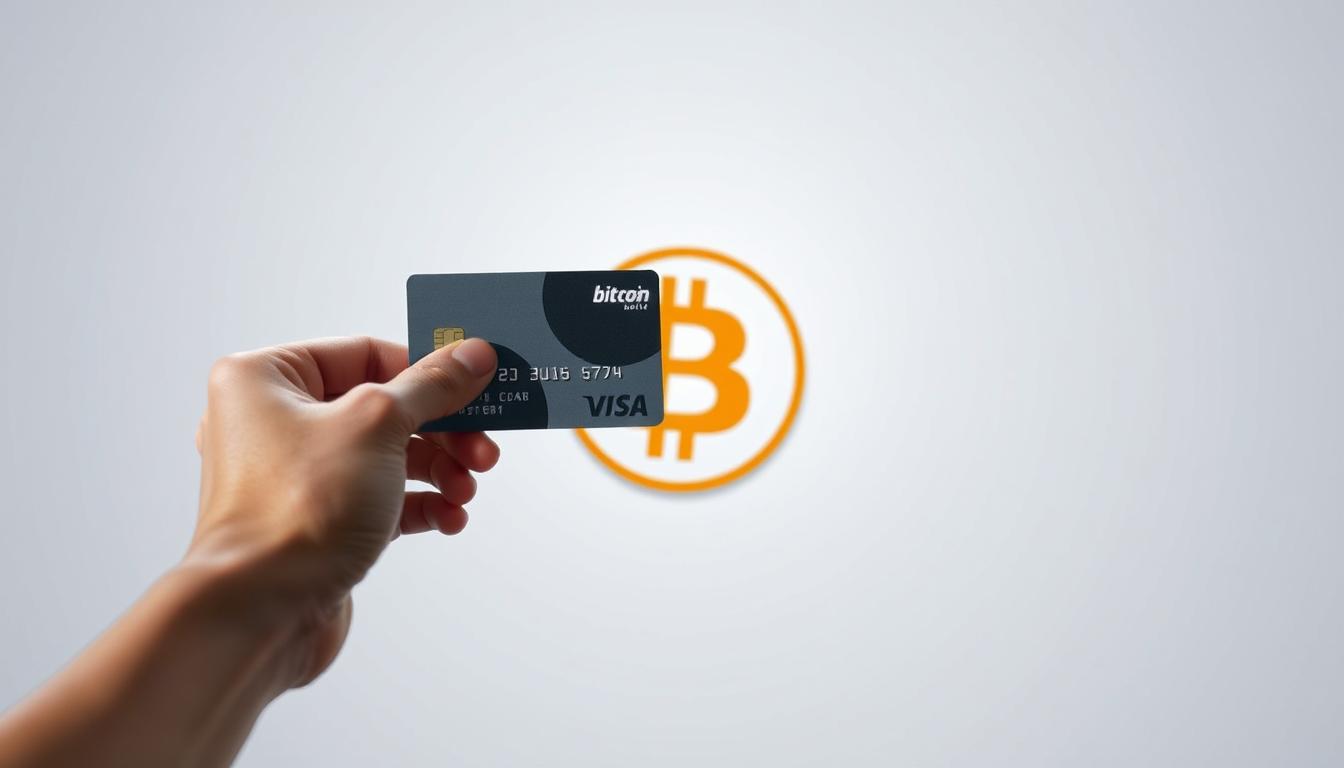Now Reading: How to Become a Blockchain Developer in 2026 : Ultimate Guide
- 01
How to Become a Blockchain Developer in 2026 : Ultimate Guide
How to Become a Blockchain Developer in 2026 : Ultimate Guide

The digital world is transforming rapidly, and blockchain technology sits at the heart of this revolution. This guide is your entry point into one of the most exciting and in-demand career paths available today.
As industries from finance to supply chain embrace decentralization, the need for skilled professionals has never been greater. A blockchain developer builds the foundational systems and applications that power this new era.
This field offers a unique opportunity. Success hinges on mastering specific technical skills and a passion for innovation, not necessarily a traditional degree. Our guide provides a clear, structured roadmap to take you from curious beginner to job-ready developer.
You will learn the essential programming languages, tools, and frameworks. We cover everything from core protocol creation to decentralized application building. This practical approach ensures you gain both theoretical knowledge and hands-on blockchain development experience.
Key Takeaways
- Blockchain development is a high-growth career field with significant opportunities in 2026.
- The role involves building decentralized systems and applications using specific technical skills.
- A traditional computer science degree is not always a strict requirement for entry.
- The career path splits between core protocol developers and software application developers.
- This guide provides a practical, step-by-step learning pathway from beginner to professional.
- Mastering key programming languages and tools is essential for success.
- Real-world project experience is a critical component of becoming job-ready.
Introduction to Blockchain Development in Today’s Market
The global blockchain market valuation underscores a massive shift in technological priorities. Valued at over $31 billion in 2024, this growth is fueled by the need for secure, decentralized systems.
Industry demand for skilled professionals far outpaces the current supply. This creates a significant opportunity for those acquiring these specialized skills.
The U.S. Bureau of Labor Statistics projects a 17% growth in software development jobs through 2033. This rate is more than four times the average for all occupations.
Major corporations and startups are actively exploring implementations. Applications range from cryptocurrency to enterprise management systems.
The technology‘s core advantages drive its adoption. It provides transparent, immutable, and decentralized solutions to critical business challenges.
| Industry Sector | Primary Application | Key Driver |
|---|---|---|
| Finance | Cryptocurrency & Payments | Security & Speed |
| Supply Chain | Asset Tracking | Transparency |
| Healthcare | Patient Records | Data Integrity |
This expansion creates diverse career paths. Opportunities exist in public protocols and private enterprise solutions.
Understanding Blockchain Technology and Its Impact
At its core, a blockchain functions as a specialized digital ledger. Unlike standard databases with rows and columns, this technology packages data into encrypted blocks.
Each block has a limited capacity. When full, it seals and connects to the previous block using cryptography. This forms a continuous, unbreakable chain.
The cryptographic link creates a permanent timestamp. This process makes the record immutable, verifying the accuracy of every transaction. It replaces central control with a distributed network.
This decentralized design eliminates single points of failure. It greatly enhances security and transparency across the system. The impact of this technology reaches far beyond digital currencies.
Major industries are leveraging blockchain for transformative applications. These include supply chain tracking and secure medical records. Understanding these principles is vital for effective development.
This foundation enables new trustless business models. Parties can interact directly without intermediaries. The potential for innovation in blockchain applications continues to drive significant investment and development.
Exploring the Role of a Blockchain Developer
A career as a blockchain developer merges traditional software engineering with the innovative world of decentralized systems. This professional builds, maintains, and designs specialized applications that solve problems using the technology’s unique features.
The work requires a multidisciplinary skill set. It combines cryptography, distributed systems, and software engineering. This goes beyond conventional web or application development.
Daily tasks are diverse and critical. They involve writing smart contracts and creating user-friendly decentralized applications. A key responsibility is ensuring network security and scalability.
| Responsibility Area | Key Tasks | Required Focus |
|---|---|---|
| Smart Contract Development | Writing, testing, and deploying contract code | Security, efficiency |
| dApp Creation | Building front-end and back-end systems | Usability, integration |
| Network Architecture | Implementing consensus mechanisms | Scalability, decentralization |
Success hinges on balancing trade-offs like speed versus decentralization. This developer must also collaborate with various stakeholders. They translate business needs into effective technical solutions.
Continuous learning is essential in this rapidly evolving field. Strong problem-solving skills and creative thinking are just as important as technical skills.
Blockchain Core vs. Software Developers
The blockchain development landscape features two distinct career paths with unique focuses. Professionals typically specialize as either core infrastructure developers or application-focused software developers.

Core blockchain developers build the foundational systems. They design consensus mechanisms and security protocols. Their work ensures network integrity and performance.
These developers require deep knowledge of cryptography and distributed systems. They typically use languages like Rust and C++ for optimal performance.
| Role Type | Primary Focus | Key Technologies | Typical Projects |
|---|---|---|---|
| Core Developer | Protocol design & network architecture | C++, Rust, Go, cryptography | Consensus algorithms, node software |
| Software Developer | Application building & smart contracts | Solidity, Web3.js, JavaScript | DApps, DeFi platforms, NFTs |
Software developers create dapps on existing platforms. They handle both user interfaces and blockchain integration. This role has more entry-level opportunities.
Understanding this distinction helps professionals choose appropriate learning paths. Most begin with application development before advancing to core protocols.
Fundamental Concepts of Blockchain and Decentralization>
The shift from centralized to decentralized systems represents a fundamental technological transformation. Decentralization distributes control across a network rather than concentrating power with a single authority.
Traditional systems like banking rely on central institutions to manage transactions and enforce rules. These centralized authorities maintain complete control over user data and can impose restrictions or fees.
Blockchain technology operates differently through distributed consensus mechanisms. Network participants collectively validate transactions using cryptographic proof instead of relying on intermediaries.
Understanding these fundamentals is essential for working with distributed ledgers. Key concepts include consensus mechanisms, cryptographic hashing, and peer-to-peer network architecture.
Mastering blockchain basics provides the conceptual framework for informed development decisions. This knowledge helps professionals leverage the technology‘s strengths while recognizing its limitations.
Diverse Programming Languages for Blockchain Development
The blockchain ecosystem demands proficiency in specific programming tools and languages. Each language serves distinct purposes within the development workflow. Strategic language selection directly impacts project success and career opportunities.
Solidity stands as the essential language for Ethereum smart contract creation. This specialized programming language powers decentralized applications across compatible networks. Mastering Solidity provides access to the largest smart contract ecosystem.

JavaScript remains crucial for both front-end interfaces and back-end integration. Developers use frameworks like React.js with Web3.js libraries for blockchain connectivity. Python offers exceptional versatility for scripting, prototyping, and backend systems.
Rust has gained prominence for high-performance protocol development. Its memory safety features make it ideal for security-critical applications. Languages like Go and C++ also serve important infrastructure roles.
Successful professionals typically master two to three complementary programming languages. This approach creates versatile skill sets applicable across multiple platforms. The right language combination depends on specific career goals and platform preferences.
Key Skills for Building Secure Decentralized Applications>
Constructing robust decentralized applications demands a unique blend of specialized technical skills. This goes far beyond standard programming knowledge.
Cryptography is a cornerstone of this development process. A developer must understand encryption, hashing, and digital signatures. These tools protect sensitive data and secure every transaction.
Proficiency with advanced data structures is equally vital. Structures like Merkle trees enable efficient data verification. Patricia tries and hash tables are also common in this field.
Security awareness is paramount. Mistakes can lead to irreversible losses on an immutable ledger. Writing secure, gas-efficient smart contracts is a critical skill.
| Skill Category | Core Focus Areas | Practical Application |
|---|---|---|
| Cryptography & Security | Encryption, hashing, digital signatures | Transaction integrity, data protection |
| Smart Contract Development | Secure coding, gas optimization, testing | Creating automated, trustless agreements |
| Full-Stack Integration | Web3.js, React, backend APIs | Building user-friendly dApp interfaces |
Understanding consensus mechanisms guides application design. It ensures applications work harmoniously with the underlying blockchain.
A successful developer balances these technical skills with strong architectural problem-solving. This holistic approach is key to effective blockchain development.
Mastering Smart Contracts and Distributed Ledgers
Imagine a vending machine for complex agreements. You provide the required input, and the machine automatically delivers the exact output. This is the core principle behind smart contracts.
These digital contracts are self-executing programs stored on a blockchain. They run automatically when participants meet predefined conditions. This process eliminates the need for a middleman.
Think of a parking meter. Inserting payment automatically grants parking time. No cashier is needed. Smart contracts operate with the same automated compliance for financial or legal terms.
Mastering this technology requires proficiency in Solidity, the primary language for Ethereum smart contract development. Writing secure code is non-negotiable. Flaws in a deployed contract cannot be easily patched due to blockchain immutability.
A developer must rigorously test contracts on test networks before mainnet deployment. This practice prevents costly errors. Understanding Solidity and security patterns is essential for building reliable decentralized applications.
how to become a blockchain developer in 2025
Multiple educational routes lead to success in the decentralized technology field. Traditional computer science degrees provide a solid foundation. Self-directed learning through online courses and bootcamps offers flexible alternatives. Practical project experience often proves equally valuable for this career path.
Aspiring professionals should begin with fundamental programming concepts. Mastering languages like Python or JavaScript creates essential building blocks. This technical groundwork prepares individuals for specialized blockchain technologies.
The learning progression follows a logical sequence. Start with general programming skills before diving into distributed ledger fundamentals. Then advance to smart contract creation and decentralized application building.
Complete beginners can achieve proficiency within 4-6 months with dedicated study. Part-time learners typically require 7-12 months. Building a portfolio of real projects demonstrates practical blockchain developer skills to potential employers.
Successful professionals combine technical competencies with industry awareness. Following market trends and participating in developer communities enhances career readiness. This comprehensive approach prepares individuals for the evolving blockchain landscape.
Learning Blockchain Fundamentals Through Practical Projects
True mastery of this technology emerges when theory meets practice. Building tangible projects transforms abstract concepts into working applications.
This hands-on approach is the fastest path to gaining valuable experience. It prepares you for the real-world challenges of blockchain development.
Hands-on Coding Practice
Begin your journey with simple, foundational projects. Creating a basic blockchain from scratch in Python teaches core principles like hashing and chain validation.
Progress to building a simple cryptocurrency wallet. This project offers practical experience with key cryptography and transaction signing.

The next logical step is constructing a basic decentralized application, or dapp. Use React.js for the frontend and Web3.js for blockchain integration.
This teaches how user interfaces interact with smart contracts. Implementing a simple voting or token project solidifies smart contract logic.
Contributing to open-source repositories on GitHub provides invaluable experience. You learn professional code standards and receive feedback from seasoned developers.
Real-World Use Cases in Blockchain
Effective development connects technical skills to solving actual problems. Blockchain applications span many industries.
These include supply chain tracking and secure medical record platforms. Building projects that address these use cases is crucial.
It helps a developer understand business needs and user experience. This practical experience makes your portfolio stand out.
Always document your dapp projects thoroughly. Clear documentation demonstrates professional development practices to future employers.
Navigating the Blockchain Job Market and Career Opportunities
The employment landscape for skilled technical professionals in the decentralized space is exceptionally promising. High demand for qualified talent significantly outpaces the current supply.
This creates a favorable environment for both entry-level and experienced developers. The U.S. Bureau of Labor Statistics supports this trend, projecting strong growth for software roles.
Industry Demand and Salary Insights
Compensation reflects the high industry demand. Glassdoor reports an average annual salary of $147,000 for this role in the United States.
Some sources cite figures approaching $150,000. This earning potential is a major career attractor.
Opportunities exist at leading companies like Ethereum, Solana, and Polygon. Enterprise solutions like Hyperledger also hire talent.
The business case for adoption continues to strengthen across sectors. This ensures long-term demand for development skills.
- Remote Work: Many positions offer location flexibility, allowing work from home or anywhere.
- Diverse Roles: Specializations include smart contract development, security auditing, and protocol engineering.
- Career Progression: Paths advance from junior roles to senior and lead architect positions.
Networking within the community significantly enhances career prospects. It provides access to new opportunities and collaborative projects.
Essential Tools, Frameworks, and Technologies for Blockchain Builders
Professional blockchain builders rely on a specialized toolkit of frameworks and libraries. Mastering these technologies is crucial for efficient and secure development.
The right tools streamline creating and deploying decentralized applications.
Development Frameworks and Libraries
Frameworks like Truffle and Hardhat form the backbone of modern blockchain workflows. They handle complex tasks like compiling smart contracts and managing deployments.
These technologies provide automated testing environments. This reduces errors before code reaches the main network.

Libraries bridge traditional web apps with the ethereum blockchain. Web3.js is the most common JavaScript library for this connection.
Ethers.js offers a lightweight alternative with excellent documentation. Both enable interaction with smart contracts from web interfaces.
| Framework | Primary Use | Key Advantage |
|---|---|---|
| Truffle | Smart contract suite | Established, extensive features |
| Hardhat | Ethereum development | Superior debugging, plugins |
| Remix IDE | Browser-based coding | Quick start, no setup needed |
Decentralized File Storage and Containerization
Dapps often need to store large files like images or documents. IPFS provides decentralized storage for this off-chain data.
It maintains decentralization by storing only content hashes on-chain. This is a key technology for scalable dapps.
Containerization with Docker ensures consistent environments. It allows a developer to run local nodes reliably.
Cloud platforms like AWS host blockchain infrastructure. They support running validators and deploying backend services.
Understanding these supporting protocols and systems is essential. It enables the creation of robust, production-ready applications on the ethereum blockchain.
Step-by-Step Roadmap to Launch Your Blockchain Career
A clear, structured learning path is your most valuable asset for entering the field of decentralized technology. This roadmap outlines the essential stages, from foundational programming to advanced specialization.
Building a Strong Foundation in Coding and Computer Science
Solid fundamentals in computer science are non-negotiable. This knowledge includes algorithms, data structures, and networking principles.
Many professionals start with degrees in this field. Alternative paths like bootcamps offer accelerated programming training. Begin with languages like Python or JavaScript.
Programs like Blockchain Revolution Specialization can teach core concepts in about two months. This provides a crucial understanding of real-world use cases.
Advanced Courses and Certifications
After mastering basics, advance to specialized topics. Deepen your knowledge with a course like Stanford’s Cryptography I.
Master smart contract development in approximately six months with programs like Building DApps in Ethereum Blockchain. Professional credentials, such as the Certified Blockchain Developer certification, validate your skills.
| Pathway | Focus | Typical Time Investment |
|---|---|---|
| Formal Degree | Comprehensive computer science principles | 4 years |
| Structured Bootcamp | Intensive, job-focused programming skills | 3-6 months |
| Self-Directed Learning | Flexible, modular course progression | 4-12 months |
Dedicated time and consistent effort are the keys to success on this exciting career path.
Emerging Trends in Decentralized Technologies
The decentralized technology landscape continues to evolve with groundbreaking innovations. These advancements expand blockchain applications far beyond their original financial use cases.
New solutions are transforming entire industries through secure, transparent systems.
Innovations in DeFi and NFTs
Decentralized Finance represents a revolutionary shift in financial services. DeFi protocols enable lending, trading, and insurance without traditional intermediaries.
These systems manage billions in value through sophisticated smart contracts. Developers create complex platforms like decentralized exchanges.
Non-fungible tokens have expanded into gaming, music rights, and digital identity. The demand for NFT marketplace development continues growing across multiple sectors.
This creates numerous opportunities for specialized technical professionals.
The metaverse combines blockchain technology with virtual reality experiences. It enables true ownership of digital assets and virtual land.
Private blockchains serve enterprise business needs with permissioned networks. Platforms like Hyperledger Fabric offer controlled access for corporate applications.
Cross-chain interoperability protocols connect different blockchains seamlessly. This allows assets to move between ecosystems like Ethereum and Solana.
Staying current with these trends requires continuous learning and adaptation within this dynamic industry.
Building a Portfolio with Real-World Blockchain Projects
A powerful portfolio distinguishes exceptional candidates in the competitive blockchain field. Practical projects demonstrate your ability to solve real problems with decentralized technology.
Start with foundational exercises and progress to complex applications. This progression shows your growing expertise in blockchain development.
| Project Level | Example Projects | Skills Demonstrated |
|---|---|---|
| Beginner | Basic token contract, simple wallet | Smart contract fundamentals, basic cryptography |
| Intermediate | DeFi protocol, NFT marketplace | Complex logic, security considerations |
| Advanced | Full-stack dApp, cross-chain bridge | Architecture design, integration skills |
Contributing to open-source repositories provides invaluable experience. GitHub contributions demonstrate collaboration skills and expose you to professional standards.
Each project should include comprehensive documentation explaining the problem solved and technologies used. Deploying to test networks shows understanding of the full development lifecycle.
This hands-on approach creates tangible evidence of your capabilities as a blockchain developer. Real-world applications prove you can deliver functional solutions.
Conclusion
Your journey into the world of decentralized technology begins with a single step. This path offers a remarkable career opportunity at the forefront of digital innovation.
Success requires dedication to mastering both core programming and specialized blockchain skills. The industry’s rapid evolution in areas like DeFi ensures long-term relevance for skilled professionals.
Building a portfolio with real-world projects is the most effective way to demonstrate your capabilities. This practical development experience is what employers value most.
The roadmap is clear. Start learning today to position yourself for a rewarding future as a blockchain developer. Your next move defines your success.
FAQ
What is the primary difference between a blockchain core developer and a blockchain software developer?
A blockchain core developer works on the fundamental protocol and architecture of the blockchain network itself. They focus on consensus mechanisms, network protocols, and cryptography. A blockchain software developer builds applications, like dApps and smart contracts, that run on top of existing blockchain platforms like Ethereum or Solana.
Is a degree in computer science necessary to start a career in this field?
While a degree provides a strong foundation, it is not strictly necessary. Many successful professionals are self-taught or have completed coding bootcamps. A deep understanding of data structures, algorithms, and cryptography is essential, which can be acquired through dedicated online courses and practical experience.
Which programming language is most important for writing smart contracts?
Solidity is the most prominent language for smart contract development, especially on the Ethereum blockchain. It is statically typed and designed specifically for implementing smart contracts. For other ecosystems, like Solana, Rust is a key language, while Cosmos uses Go.
What are the most in-demand skills for a blockchain developer in the current market?
High-demand skills include proficiency in smart contract development, understanding of decentralized application (dApp) architecture, knowledge of cryptography, experience with development frameworks like Truffle or Hardhat, and familiarity with Web3.js or Ethers.js libraries.
How long does it typically take to gain the necessary skills to become job-ready?
The timeline varies based on your prior experience. For someone with a background in software development, it may take 6-12 months of focused learning. For beginners starting from scratch, building a solid foundation in computer science and blockchain fundamentals could take 1-2 years of consistent study and project work.
What kind of salary can a blockchain developer expect?
Salaries are highly competitive due to strong industry demand. Entry-level positions often start with attractive compensation, while experienced developers with expertise in smart contracts and specific protocols can command top-tier salaries, especially at major tech companies and innovative startups in the fintech space.
What are some essential tools for a blockchain developer’s toolkit?
Key technologies include development environments like Remix IDE, testing frameworks such as Truffle Suite, version control with Git, and containerization with Docker. For decentralized file storage, familiarity with the InterPlanetary File System (IPFS) is also highly valuable for building robust applications.















